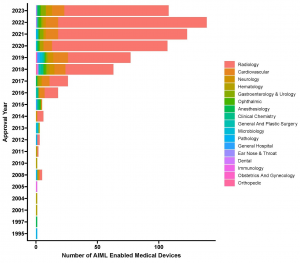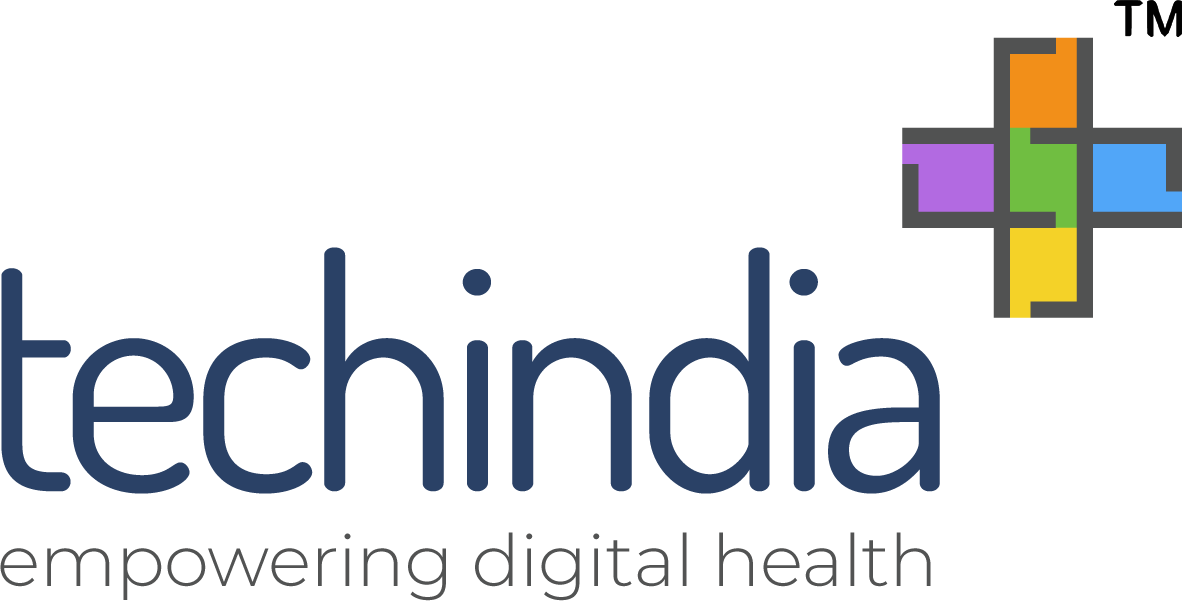- Posted: 12 Mar 2024
- Category: services
- Tag: cardiac device data management solutions, cardiac monitoring service
Top AI Trends Redefining Cardiac Monitoring in 2024
The year 2023 witnessed a remarkable transformation in healthcare, especially cardiac care, with artificial intelligence (AI) emerging as a driving force behind revolutionary changes in patient experience. Across detection, diagnosis, treatment, and prevention, AI is enhancing communication between patients and healthcare providers, improving accessibility, personalizing care, and streamlining processes.

Currently estimated at USD 26.35 billion in 2024, the Global Cardiac Monitoring Market is projected to reach USD 33.81 billion by 2029, growing at a CAGR of 5.11% during the forecast period (2024-2029).
In this AI-driven, patient-centric healthcare landscape, several new transformative trends are reshaping the future of cardiac care. Here are the top trends at the forefront of this change.
- Personalized Medicine and Predictive Analytics
AI algorithms are increasingly becoming adept at analyzing vast datasets, including genetic information, patient history, and real-time monitoring data. In 2024, we can expect a surge in the development of personalized medicine approaches for cardiac patients. AI will play a pivotal role in predicting an individual’s risk of cardiac events based on their unique genetic makeup and lifestyle factors. By harnessing predictive analytics, healthcare providers can proactively intervene, offering personalized preventive measures tailored to each patient.
- Digital Stethoscopes and AI Analysis
The advent of digital stethoscopes equipped with AI-supported analysis has significantly alleviated the burden of cardiovascular disease detection worldwide. These innovative devices amplify cardiac sounds and employ advanced algorithms to analyze heart murmurs, rhythms, and abnormalities accurately. Healthcare practitioners can swiftly identify potential issues by leveraging AI, enabling early intervention and proactive management of cardiac conditions.
- Remote Patient Monitoring (RPM) Revolution
AI-powered wearable devices and mobile applications will enable continuous monitoring of cardiac parameters, providing real-time data to healthcare professionals. Machine learning algorithms can analyze this data to detect subtle changes in a patient’s condition, allowing for early intervention and reducing the need for frequent hospital visits. This trend is particularly beneficial for patients with chronic cardiac conditions, offering them a more convenient and efficient means of managing their health.
- Automated ECG Interpretation
With AI algorithms providing unparalleled reliability, ECG interpretation achieves a remarkable 100% accuracy rate. Medical education has adapted accordingly, with formal instruction in ECG interpretation giving way to comprehensive training in leveraging AI-driven diagnostic tools. This transition streamlines workflow efficiency and ensures consistent, accurate diagnoses across healthcare settings. Advanced algorithms can analyze EKG patterns with unprecedented accuracy, aiding in the early detection of arrhythmias and other cardiac abnormalities. Additionally, AI-powered image analysis is improving the efficiency of interpreting cardiac imaging modalities such as echocardiograms and MRIs, providing clinicians with more precise diagnostic information.
- Smart Sock Monitoring for Heart Failure (HF) Management
Smart sock technology equipped with sensors for tracking ankle edema variation has emerged as a game-changer in HF management. By providing real-time data on fluid retention, these innovative devices empower patients to monitor their HF symptoms closely and seek timely medical intervention when necessary. Automated counseling and alerts guide individuals on when to consult HF ambulatory clinics, fostering proactive management and improving outcomes for HF patients.
- Acceleration of Clinical Trials through AI and Machine Learning
Artificial intelligence and machine learning are catalyzing innovation in clinical trials, reducing the required number of participants, costs, and data processing time. Researchers can expedite the drug development process by leveraging AI-driven algorithms for patient selection, endpoint analysis, and predictive modeling and bring novel therapies to market more efficiently. This paradigm shift in clinical trial methodology holds immense promise for advancing cardiac care and addressing unmet needs in cardiovascular medicine.
- Integration of Natural Language Processing (NLP)
Integrating Natural Language Processing (NLP) into healthcare systems is gaining momentum. In 2024, we can expect AI-powered systems to extract valuable insights from unstructured clinical notes, enabling a deeper understanding of a patient’s cardiac health. NLP algorithms will sift through vast amounts of textual data, identifying relevant information and contributing to a holistic cardiac monitoring and treatment planning approach.
- Blockchain for Secure Health Data Sharing
As the volume of health data continues to grow, ensuring its secure and interoperable exchange becomes paramount. Blockchain technology, coupled with AI, is expected to play a critical role in creating a secure and transparent ecosystem for health data sharing. In 2024, we anticipate the development of decentralized solutions that enhance data integrity, privacy, and accessibility, facilitating seamless collaboration among healthcare providers and researchers.
The convergence of AI technology and cardiac monitoring has brought about a new era of precision medicine and proactive healthcare delivery. AI-driven innovations are reshaping the landscape of cardiac care, from early detection and diagnosis to personalized treatment and prevention. These trends offer the potential for more precise diagnoses and customized treatment strategies, ultimately resulting in enhanced patient outcomes and greater efficiency in healthcare systems. This advancement brings us nearer to realizing the goal of a healthier, heart-conscious society.
Recent Post

We're helping some of the most respected names in healthcare deliver measurably better outcomes. Let us show you what personally Human & AI integrated solution can do for your organization. While filling the form, please fill in the information more specifically that you are looking for.
Thank you for your query! We will get back to you shortly!!

